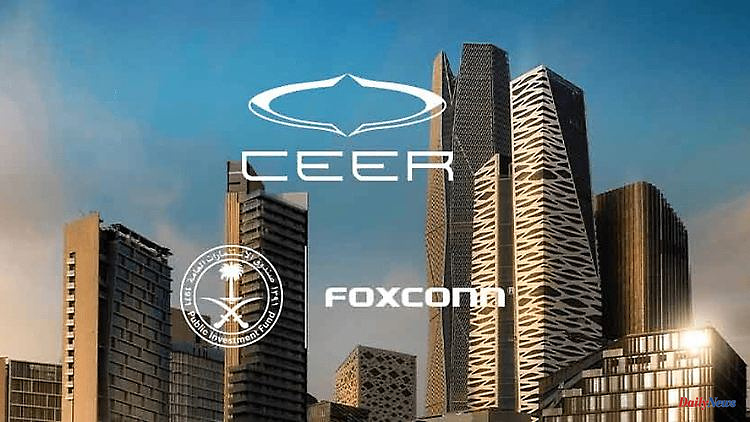Oil and petrol are by no means scarce or expensive in the Middle East, and hardly any electric vehicles have been sold there so far. But now the region is slowly beginning to move into the electric age. The new Saudi Arabian carmaker Ceer could lead the way.
The Middle East begins the electrification of automobile transport. The first infrastructure projects and funding programs have been announced. And the first regional car brand is about to start in Saudi Arabia.
At the beginning of November, the Saudi sovereign wealth fund PIF and the Taiwanese contract manufacturer Foxconn announced the joint establishment of the Ceer car brand. From 2025, the first regional manufacturer should sell e-mobiles in the so-called MENA region, i.e. in the Middle East and North Africa. Details on models and works are not yet known. The new brand is intended to serve the still low but growing demand for electric cars locally.
So far, e-mobiles are still sold in homeopathic quantities in the Middle East. But the market is growing above all in the centers. According to the management consultancy Inovev, Abu Dhabi already has 2,000 charging stations on the network, and there are 200 in Dubai. Egypt wants to set up around 3,000 charging stations together with the Chinese car manufacturer Dongfeng. In addition, the first states have announced funding programs and ambitious CO2 targets for transport. Morocco, for example, is planning to reduce energy consumption in transport by 23 percent by 2030. Not least with the help of solar power, which can easily be produced in the entire region.
So far, Toyota has been the market leader in the region with its off-road vehicles and mid-size sedans. Around 29 percent of all new cars in the Middle East and North Africa come from the Japanese brand. Hyundai-Kia and Renault-Nissan follow with almost 20 percent. The Chinese manufacturers are on the up with a market share of a good 12 percent - twice as much as the Stellantis Group, which is traditionally strong in the region. So far, German manufacturers have hardly played a role in the region outside of the luxury market.
For Germany, the move towards e-mobility in the Arab region could also play a role beyond market opportunities for e-car manufacturers. The sun-drenched Arabian peninsula in particular is considered a possible location for the production of e-fuels, synthetic fuels produced with the help of solar power. Local electrification of the transport sector would potentially limit the availability of green energy for fuel production.












